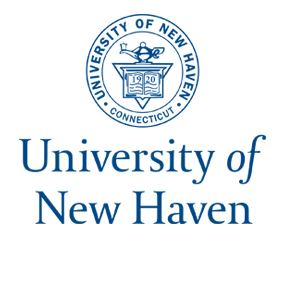
University News
University of New Haven Acquires Railroad Salvage Building and Land Adjacent to Main Campus
The 130,000 square-foot-building and 12-acre lot will be reimagined to create a pioneering Research and Development Center.
The Charger Blog
Robert Sanders, LP.D., J.D., LLM, was at work in the Pentagon when the building was attacked on September 11, 2001. Today, he oversees the University of New Haven’s national security program, which was one of the first such academic programs developed following the 9/11 attacks.
September 9, 2021
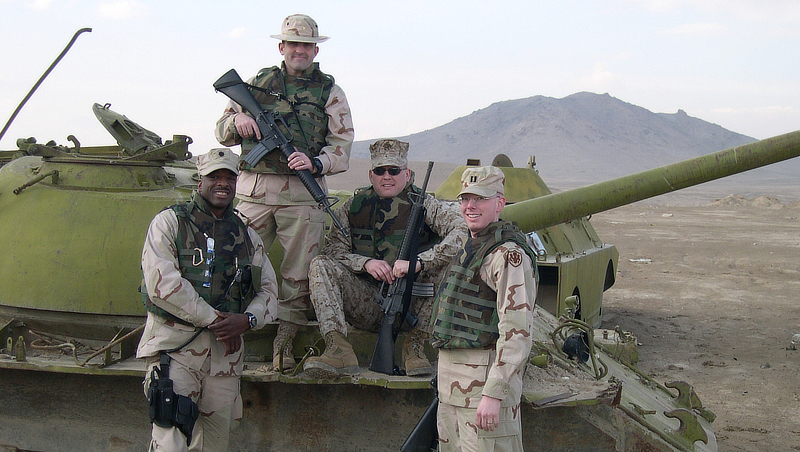
Twenty years ago, Robert Sanders, LP.D., J.D., LLM, was at the Pentagon on what seemed like an ordinary morning. But while he was at the gym, he was shocked to see video on television of the World Trade Center burning. Soon after, he and a friend were having breakfast together when a plane crashed into the Pentagon.
Dr. Sanders and his friend, an Explosive Ordnance Disposal officer, were not far from where American Airlines Flight 77 hit, and they were just one floor up and two rings in from where the aircraft stopped. The impact caused everything around them – plates, utensils, food, etc. – to become airborne. Dr. Sanders remembers seeing a nearby colleague continue to eat his breakfast after his plate landed back on the table, not missing a beat.
Dr. Sanders and his friend jumped up and ran out, and when they turned a corner, they saw smoke. They quickly returned to their offices, gathered their belongings, and left the building.
Outside, Dr. Sanders and his colleagues helped bring those who had been wounded out of the Pentagon. Since cell phone lines were not working, someone was taking down everyone’s name to let their loved ones know they had survived. Despite the challenge of getting information out, some critical, if incomplete, information reached them.
“We got word that another plane was on its way in,” explains Dr. Sanders. “They didn’t know if it was heading for us, so they moved us back away from the Pentagon.”
That plane was American Airlines Flight 93, which later crashed near Shanksville, Pennsylvania, its planned attack on the U.S. Capitol stopped by its passengers and crew members.
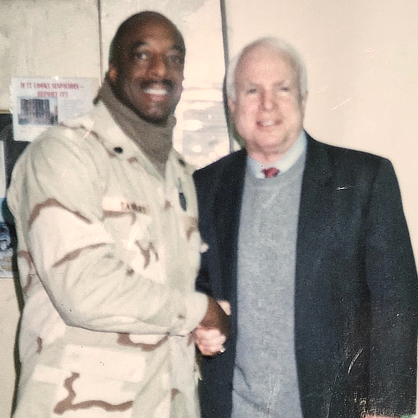
Flight 77 crashed into the part of the Pentagon in which Dr. Sanders’s former office – where he worked as an intel specialist in the navy command center – had been located. Most of the people who had been there were killed, and those who survived were very badly burned. It was one of several near misses that day for Dr. Sanders and his friends and family.
“My sister should have been in the World Trade Center that day, but she skipped her meeting,” he said. “Three of her colleagues died. My roommate from college also should have been in his office in the World Trade Center, but because he was moving from New York to Washington, D.C., he stopped at his house in Brooklyn before heading to his office. The plane hit when he was at home.
“My cousins, who were in the building when the first plane hit, left immediately,” he continued. “They all survived. One of those cousins had a brother who was a World Trade Center firefighter, and he’d just been transferred and promoted. He was on the other side of the river when the attack took place – so, instead of a being first responder, he was a fourth responder. He survived.”
Dr. Sanders also had a fraternity brother who was supposed to have been on Flight 77. As fate would have it, he changed his plans, leaving for Los Angeles a day earlier – against his wife’s wishes – to extend his trip. He flew to Los Angeles on September 10, and he, too, was spared.
Dr. Sanders, however, did know many people who were killed on 9/11, such as Capt. Jack Punches, USN (Ret.), the Commanding Officer of the squadron where he worked when serving in Sicily during the first Gulf War. He continues to remember those colleagues and, to pay his respects, he recently shared a particularly moving experience with his daughter.
“For my 60th birthday, my daughter said she wanted to learn more about September 11, so we went to the 9/11 Memorial and Museum,” he said. “When we finished touring we went to the fountains, and she wanted to take a picture. I realized I was at the spot where the commanding officer’s name was inscribed. Out of all the places to stop, I was in front of his name and the other people I knew who were killed in the Pentagon that day.”
The events of September 11 have shaped Dr. Sanders both personally and professionally over the last 20 years, changing the course of his career. A retired U.S. Navy Judge Advocate General’s Corps Captain, Dr. Sanders focused the early part of his career on international law and litigation, spending part of it overseas. While living in Italy, he was involved with cases in Africa, the Middle East, and Europe as a defense counsel and as a prosecutor for the U.S. Navy.
“Afghanistan changed all of that because my international focus changed,” explains Dr. Sanders. “It became a broader part of what I was doing as a lawyer. It was my generation’s war.”
Dr. Sanders paraphrases a quote he kept on display in his office during his time in Afghanistan, something he saw each day before he went out, “It is better for them to do it imperfectly than for you to do it perfectly, for it is their country, and your time is short.” The quote guided and inspired him as he taught Afghans how to be “fishermen of the rule of law.” He endeavored to give them the tools and the skills they’d need to implement the rule of law in Afghanistan, however they thought best.
“I had the first generation of Afghan legal officers for the military,” he said. “I taught them every day during my tour. I taught their leadership, and I was their mentor. When I got there, there wasn’t a military disciplinary construct. When I left, they had tried 500 cases.”
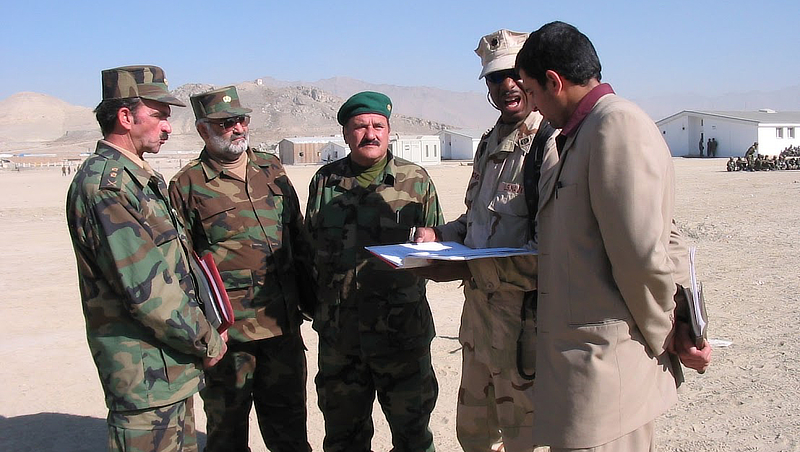
The Taliban’s recent takeover of Afghanistan has transformed how Dr. Sanders remembers his time in the country. For example, when he discusses a particularly moving conversation between himself and an Afghan colonel, it is through the lens of how the Taliban’s rule will impact those he worked and interacted with.
With the help of his team of translators – all of whom were able to get out of the country safely – the colonel asked Dr. Sanders if he worked with the women around them who were also members of the U.S. military. When Dr. Sanders told him he did, the colonel asked if it was possible for women to do exactly what Dr. Sanders did in society and in the military, and he answered in the affirmative.
“The colonel was quiet before finally saying that what he wanted was for his daughters to have these opportunities when they grow up,” remembered Dr. Sanders. “His daughters were preteens then, now they are in their early 30s. They spent 20 years with a dad who had a vision for them to be full humans within their societal construct, and that’s over. If they reached that, it’s gone.
“That’s what I think about – the military folks I worked with and the civilians who worked with me who are either dead, on the run, or who got out,” he continued. “It’s a sad, frustrating thing. But I’m proud of what I did there. I’m proud of the first person who went in, of the last person who got out, and of everyone in between because we went to do something that was right and good, but it was complicated.”
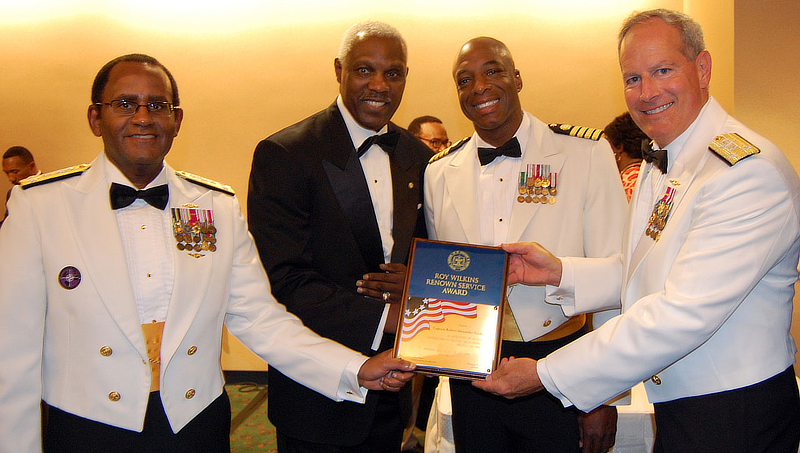
A fourth-generation member of the military, Dr. Sanders is proud of his family’s service, which stretches back to the Civil War. His younger cousins are fifth-generation service members. As an educator, he is inspired by his family’s history, as well as the events of September 11, as he trains the next generation of public servants.
“My ancestors were considered three fifths human for a political calculation, as opposed to just humans,” said Dr. Sanders. “Things like that have yet to change in many ways, as evidenced by events such as the insurrection at the Capitol, George Floyd’s murder, and voting rights that are being challenged right now. I teach to address all of that.”
Dr. Sanders, who teaches courses on national security law at the University, is chair of the National Security Department, which was created in response to 9/11 and was among the first such academic programs in the country. Dr. Sanders strives to help his students examine how race influences the law and vice versa, developing, for example, a course called “Security, Sovereignty, and Slavery” in response to the murder of Floyd.
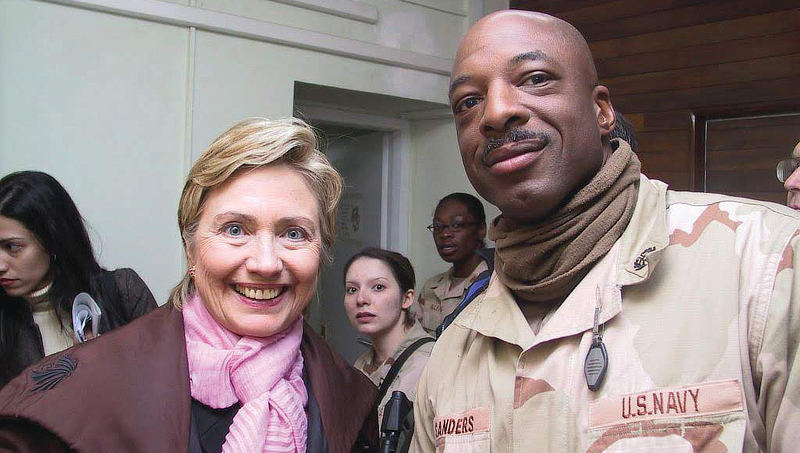
Following his distinguished military career, Dr. Sanders says he is focused on training “his replacement” – public servants in civilian clothes or those in uniform who are passionate about protecting the U.S. against all enemies. He wants his students to bring equity, equality, justice, and the rule of law to the rest of the world while maintaining it in the United States.
“When I’m sitting on my porch in my rocking chair, I expect to watch the students I trained and taught to go out and pick up the sword and the pen and do the next thing,” he said. “There are always going to be threats, whether to us or our friends, and we have a responsibility to engage. I expect these students to be a part of that, whatever it is.”

University News
The 130,000 square-foot-building and 12-acre lot will be reimagined to create a pioneering Research and Development Center.
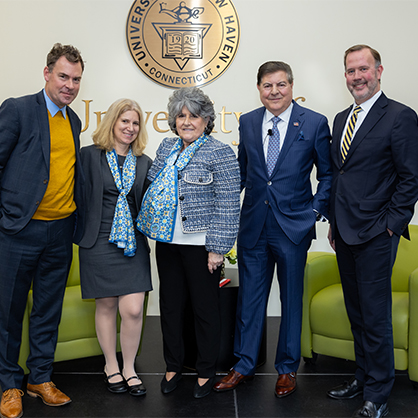
The Charger Blog
In an engaging fireside chat with the University of New Haven President Jens Frederiksen, Ph.D., Frank Martire ’77 MBA, an esteemed business leader, philanthropist, and advocate for higher education, shared insights on leadership, navigating challenges, and staying true to your values in a complex world.

The Charger Blog
Students share their transformative moments from studying at the University’s Prato campus during the Fall 2024 semester.